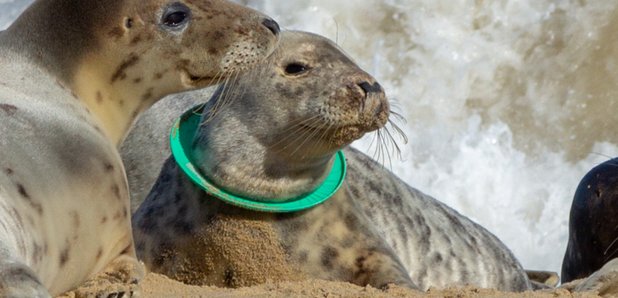Increase In The Amount Of Animals In East Anglia Affected By Plastic Litter
4 February 2019, 17:25 | Updated: 4 February 2019, 17:37

The RSPCA has found animals affected by plastic litter in Norfolk and Suffolk has almost trebled in the last four years.
The situation's worse in Norfolk, with 11 cases recorded in 2015 compared to 34 last year.
Tim Lukehurst from Plastic Free Felixstowe told Heart better education around the dangers of plastic could help: "Being more aware means we make better choices about what we buy and particularly how we dispose of plastic.
"We have found all sorts of things from syringes to nets, which are obviously dangerous for the animals, needles."
RSPCA research found that animals in water habitats are being affected disproportionately by plastic, with seals in Norfolk having been rescued recently after getting frisbees caught around their necks.
Head of Wildlife at the RSPCA, Adam Grogan, says the problem has reached an all time high:"This shocking rise in plastic litter incidents suggests that plastic is a growing threat to animals.
"Every year, the RSPCA deals with increasing numbers of mammals, birds and reptiles that have become entangled or affected in some way by discarded plastic. From seals with deep infected wounds caused by plastic frisbees cutting into their necks, to swans and geese trapped in fishing line or netting, plastic is clearly having an increasing impact on animal welfare.
"Our latest data sadly reflects the wider litter crisis taking place right now across the globe and action is urgently needed. It's up to every one of us to do our bit in the war against litter."
Of the 579 incidents recorded in the East of England in 2018 involving just plastic litter, 29 were litter from angling and 550 were from general litter.
